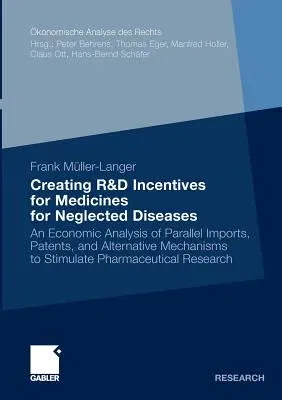Frank Müller-Langer
(Author)Creating R&d Incentives for Medicines for Neglected Diseases: An Economic Analysis of Parallel Imports, Patents, and Alternative Mechanisms to StimulaPaperback - 2009, 28 July 2009

Qty
1
Turbo
Ships in 2 - 3 days
In Stock
Free Delivery
Cash on Delivery
15 Days
Free Returns
Secure Checkout
Part of Series
Ökonomische Analyse Des Rechts
Part of Series
Konomische Analyse Des Rechts
Part of Series
Okonomische Analyse Des Rechts
Print Length
297 pages
Language
English
Publisher
Gabler Verlag
Date Published
28 Jul 2009
ISBN-10
3834917303
ISBN-13
9783834917300
Description
Product Details
Author:
Book Edition:
2009
Book Format:
Paperback
Country of Origin:
US
Date Published:
28 July 2009
Dimensions:
21.01 x
14.81 x
1.7 cm
ISBN-10:
3834917303
ISBN-13:
9783834917300
Language:
English
Location:
Wiesbaden
Pages:
297
Publisher:
Weight:
381.02 gm

